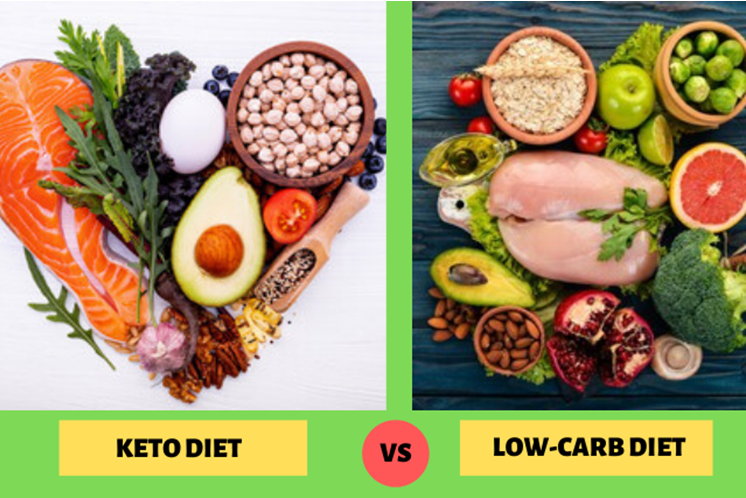
There are so many debates on Keto diets vs low carb diets. Yes, everyone’s needs are different, we can determine what’s right for us by using the Body Weight Planner, from the National Institute of Health.
Let’s take a look at the differences between keto and low-carb diet and when you might try one over the other.
The Basics of Keto Diet: The current literature supports the effectiveness of low carb diets for weight loss and health improvement.
The Keto diet is about a low-carb diet as we can go. As the usual rule, a Keto diet typically has:
- 65-80% Fat
- 15-25% Protein
- 5-10% Carbs
While a low-carb diet may not have any specific rules to follow, a Keto diet is defined by staying in a specific metabolic state called Ketosis. To stay in Ketosis, it’s required to eat net carbs which are usually 20 grams a day.
Keto is great for-
- Weight loss
- Stable energy and blood sugar
- Decreasing inflammation
- Endurance athletes and many more.
People should be strict about carb intake on Keto because if they eat too many carbs, their metabolism will switch off fat burning and then they go back to using those carbs as fuel. Everyone has their specific and unique needs; therefore, you need to find out their ideal macro values that are the key to success.
The Basics of Low-Carb Diet: There are no official guidelines for the low-carb diet. The low-carb diet is basically Keto. But with slightly higher carb intake that maybe 50 -120g of carbs in a day.
Most low-carb diets focus on food quality and cutting out high-carb refined foods like bread, sugar, soda, pasta, high-fructose corn syrup, baked goods, pastry etc. Even strict low-carb diets may cut other carbs like fruits.
Low-carb diet is great for-
- Non-endurance athletes.
- Stable energy and blood sugar.
- Being more relaxed with diet.
Due to the simple concept, a low-carb diet can be approached in different ways like Paleo, Mediterranean and Atkins diets. Low-carb diets aren’t usually low enough in carbs to keep the body in full ketosis. This diet doesn’t define a set number of carbs to stay under each day based on the body’s needs or goals. It gives us room to adjust our diet and find the carb intake that makes us feel best.
Some people may do better with low-carb while others may do better with Keto. We should follow which diet depends on your goals, preferences, lifestyle and unique biology.
